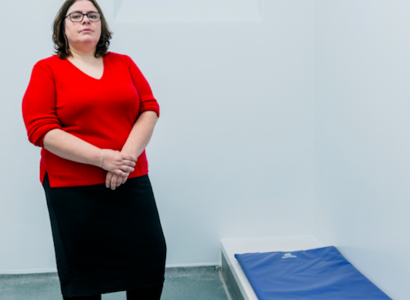You may recall that a while ago I blogged on ICVA’s Quality Assurance Framework, giving you an overview of what it was, what we hoped it would achieve and how it would work. At the point of our last blog, we were just preparing our soft launch to schemes and I wanted to give you all an update on what has been happening since!
Firstly, I have been bowled over by the sheer number of schemes who are getting involved in the QAF. Schemes do not have a statutory duty to take part in the QAF, and we know our scheme managers can be stretched for time to say the least. All but three schemes are taking part, which is amazing! The three who aren’t taking part this time have still been really enthusiastic and supportive and will undertake next time around.
Schemes have all let me know which level they are going for, there are four levels:
- Code Complaint – Schemes meet statutory requirements and basic volunteer standards
- Silver – Schemes provide a good standard of custody visiting and volunteer management
- Gold – Schemes provide an excellent standard of custody visiting and volunteer management
- Platinum – Schemes provide an outstanding standard of custody visiting and volunteer management
We have an equal spread across the first three levels and three schemes are going for platinum. I have spent a disproportionate amount of time singing the Going for Gold theme tune over the past couple of months and smiling fondly at memories of Henry Kelly. (two apologies here, only some of you will get this, and those who do will now have the tune stuck in their head).
For the silver and gold assessments, schemes need to be peer assessed to claim their level. Peer assessment is a new activity for many of our scheme managers, and they fed back that they would like some training or assistance on how to peer assess which we were only too pleased to provide.
Again, the question of time and resources comes up, with schemes completing their own assessments and asking them to peer assess other schemes QAFs being somewhat of an ask. I am delighted to report that no less than 16 of our schemes have volunteered to be peer assessors. Thank you so much to all of them, it will really help make this a success. ICVA is a small organisation with only two salaried staff and the generosity of spirit and enthusiasm our schemes show for continual improvement and working with their peers really is admirable and somewhat humbling. Schemes make time because custody visiting, and their volunteers are important. They want to celebrate them and help other schemes to do the same. It’s fantastic.
Now, I have to confess the geek in me really liked the idea of a webinar, not only does it mean I can talk uninterrupted for a long period of time, (those of you who know me know that this will not be an insurmountable challenge by any means), but it also means that our scheme managers who are based throughout the UK can attend virtually and save on costs and travel time to take part in our Peer Assessment Masterclass meaning more people are able to attend. I designed a presentation to deliver, involving some hints and tips on assessment such as being methodical and setting aside time now for assessment windows, as well as giving an overview of peer assessment as an iterative process.
One of the really important messages I wanted to get across was that peer assessment is a really great opportunity for schemes to share good practice and learn from each other. Schemes have different ways of delivering things, and different ideas on how to best meet the criteria. ICVA has suggested some possible evidence sources to meet criteria but this is by no means set in stone. I am really confident that by assessing each other, schemes will come across new ideas that they might wish to incorporate in their own practice.
We ran through what to do if the scheme being assessed and the peer assessor have a difference of opinion, unlikely but possible, such as disagreeing on whether a piece of evidence met the threshold for the criterion. We suggest ensuring that the assessment process builds in enough time for back and forth conversations and time to produce additional evidence and do have a process of escalation in the very unlikely event that schemes can’t reach an agreement. The presentation also talks about the power of positive feedback, and that schemes may produce evidence that supports a level higher than that which is claimed, and the role a peer assessor can play in highlighting this.
Now at this point, I would love to say that we delivered our first ever ICVA webinar smoothly and I am an IT genius, but that wouldn’t quite be an accurate summary, there were some, (ahem), difficulties with our technology particularly at the start, but that’s ok! The schemes were very patient, and luckily for those who didn’t get on, we were able to record the webinar and send a link to schemes so that everyone was able to access it. We will be reviewing the tech we use and ensuring that it works for our schemes, there will be more webinars from ICVA…
We are now in the process of matching schemes with their assessors and will let everybody know who they are being assessed by, and who they are assessing very soon. Many schemes have already started gathering their evidence for their awards and all schemes have until March 2019 to get their assessments completed and let ICVA know. ICVA are starting the assessments of the three platinum schemes so it’s full steam ahead for our QAF!




